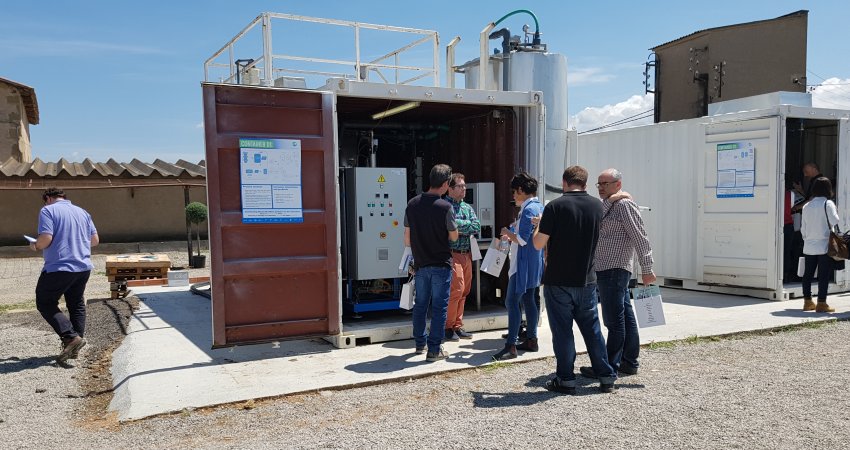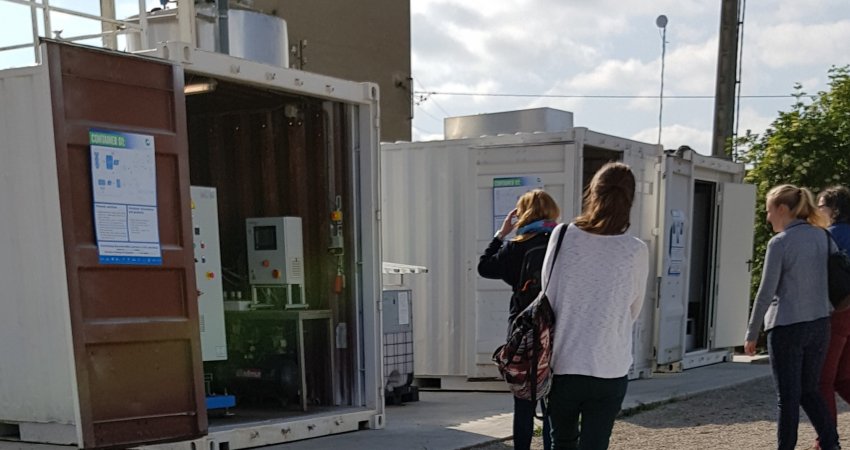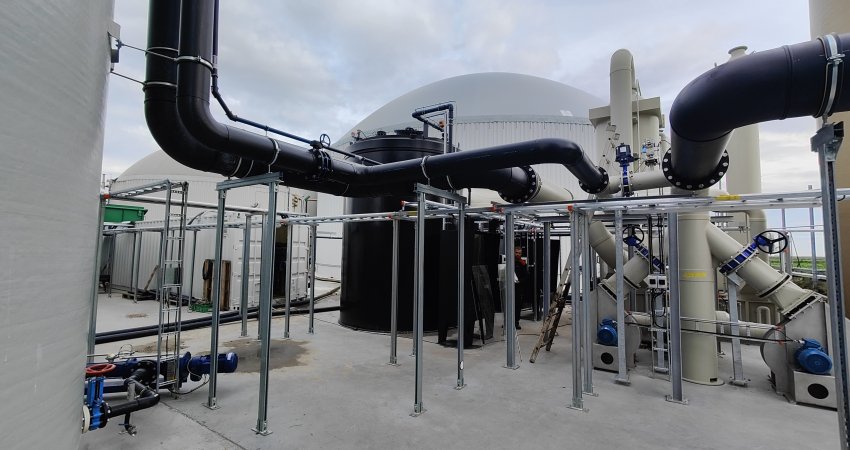ManureEcoMine: Research into closing the loop for manure
Internal / European Commission
Hulst, NL
2014 - 2016
Pilot scale digestate processing
Colsen is at the forefront of technological innovation. We do this within a European framework to develop the best technologies. For example, we have collaborated with several renowned research institutes and European companies on the European Union-funded research project ManureEcoMine, a research and technological demonstration project to closed the loop in manure processing. Knowledge institutes that participated were:
- University of Ghent (Belgium);
- University of Santiago de Compostela (Spain)
- University of Girona (Spain);
- Jülich research center (Germany);
- BOKU University (Austria).
The focus of the project was on a pilot scale demonstration of co-digestion of cow and pig manure to maximize nutrient recovery. Herefore two processes were developed, in which different Colsen technologies were used. Recovered nutrients (fertilizers) were compared with commercially available fertilizers for their effectiveness in stimulating plant growth. The possible presence of micro-pollutants such as antibiotics was also examined. In this way, sufficient data has been generated to check the economic feasibility of the entire ManureEcoMine concept and to perform a life cycle analysis (LCA).
Colsen mainly contributed to the pilot demonstrations in this project. Colsen was responsible for the design, construction and operation of the pilot on location in the Netherlands and Spain. In the Netherlands, the installation consisted of the following steps:
- Thermophilic co-digestion of manure for biogas production and nutrient release;
- Nitrogen recovery as ammonium sulphate using AMFER®;
- Digestate separation with a decanter centrifuge;
- Liquid fraction treatment with ultrafiltration (UF);
- Phosphate recovery as struvite using ANPHOS®.
The remaining water flow can be used as irrigation water rich in potassium. All recovered fertilizers were then tested for suitability in controlled laboratory tests.
A slightly different configuration was tested in Spain:
- Mesophilic co-digestion of manure for biogas production and nutrient release;
- Digestate separation with a decanter centrifuge;
- Liquid fraction treatment with ultrafiltration (UF);
- Phosphate recovery as struvite using ANPHOS®;
- Biological nitrogen removal from the water stream via nitritation / denitritation.
Potassium-rich irrigation water was also obtained in the Spanish pilot.
Both pilots showed that a closed loop within manure processing is technologically feasible, in which valuable fertilizers and irrigation water are recovered. For the economic feasibility of the ManureEcoMine process schemes, the price of fertilizers, the direct competitors of the recovered fertilizers, is currently too low. The business case can be improved by deploying the products in niche markets, by financially valuing circular agriculture and by increasing the price of fertilizers (via a CO2 tax).
Micro-contaminants such as antibiotics and heavy metals were mainly found in the solid organic fertilizer separated using the decanter centrifuge. Optimizing the solid separation efficiency prevents contaminants from entering other process products. The final concentrations depend on the quality of the fermented residual flows.


